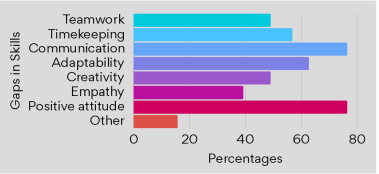BLOG
More Than a Network: The Power of Community in Early Years Leadership

Rebecca Oberg, Birth to 19's Director: Institute for the Early Years, has worked in Early Years for over 30 years. She has held leadership roles in both the charitable and private sectors, in the UK and internationally.
Meeting termly, this is a space where leaders and managers come together regularly to connect, reflect, and grow. Unlike traditional networks, which often focus on updates or passive information sharing, a CoP is about ongoing professional dialogue. It’s a place where we can openly explore challenges, share knowledge, learn from evidence, and support each other in a meaningful and sustained way.
As part of my role with the Early Years Stronger Practice Hub, I’ve had the privilege of hosting a Community of Practice (CoP) specifically for Early Years leaders and managers. It’s been one of the most rewarding aspects of our work, creating a space where those leading settings can come together not just to share information, but to deeply reflect, grow professionally, and feel genuinely supported. With all the pressures that come with leadership in the Early Years, from driving quality, to supporting staff, to embedding new initiatives, it’s clear that leaders need more than occasional CPD or updates. What we need is a professional community, rooted in trust and purpose, and that’s exactly what our CoP offers.
A CoP is different from a typical network. It’s not just a space to attend, it’s a space to belong. We come together half termly to engage with current evidence, unpack real challenges, and support one another in applying what we learn back in our own settings. Every session is built around three core elements: knowledge sharing, professional discussion, and structured reflection. We begin by exploring a shared challenge, research or guidance. We then move into facilitated discussion, where leaders share their experiences, raise questions, and offer peer-to-peer insight. Finally, we reflect: how does this learning apply to our own practice, and what actions might we take next? This reflective cycle is what makes the learning stick, and what makes our CoP so powerful.
The format aligns closely with the EEF’s guidance on effective professional development, which highlights the importance of sustained, evidence-informed, and collaborative learning. Rather than one-off training, our CoP is an ongoing journey, one that builds confidence, leadership capacity, and, ultimately, improved outcomes for children.
It also provides a unique opportunity for leaders from our region to learn not just from research, but from each other which is often where the most practical and relatable insights come from.
Our most recent session, focused on staff wellbeing, really highlighted the strength of our CoP. We explored the role of leadership in creating a culture of wellbeing, sharing strategies that were working, and not working, in our own settings. The honesty in the room was refreshing. Leaders spoke openly about the challenges of balancing staff support with operational demands, and the emotional load many are carrying. But they also shared creative, achievable ideas that had made a real difference. The energy and sense of connection by the end of the session were clear, and the feedback reflected this. Many said they left feeling recharged, valued, and more confident about supporting their teams.
Hosting this CoP has shown me the true value of professional communities in the Early Years. It’s more than CPD, it’s about creating a space where leaders feel heard, equipped, and inspired. If you’re a leader or manager in an Early Years setting, I warmly invite you to join us. Come and be part of something that not only supports you professionally, but helps you lead with renewed purpose.
Our next session will focus on how we can use the induction process to embed soft skills into staff roles from day one. The recent Foundations for the Future: Early Years Workforce Plan published by the West Yorkshire Combined Authority, demonstrates the need to equip our new recruits with the soft skills needed, 80% of leaders reported that new applicants lack the vital skills necessary for working with children and parents,, with attitude and communication coming out on top.

We will be exploring how communication, empathy, resilience, and reflective practice can be introduced and nurtured right from the start of employment, helping to build stronger, more confident teams from the ground up. I’m really looking forward to the discussion, and I hope to see even more of you there.
Download the pdf version of the blog here.
Sign up for the next Leaders and Managers Community of Practice event here - https://www.eventbrite.co.uk/e/nursery-managers-and-leaders-community-of-practice-session-tickets-1757911162609?aff=oddtdtcreator
